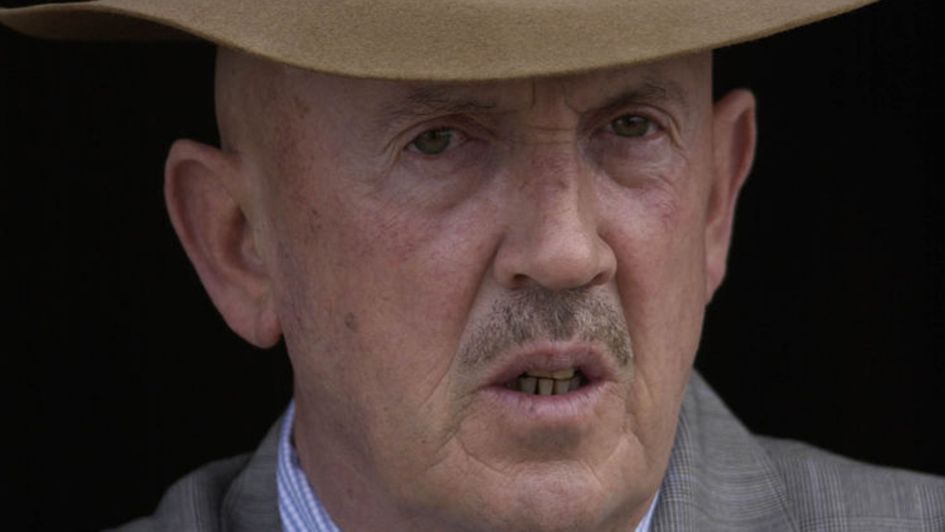
Barney Curley tribute: Cornelius Lysaght on his legacy
During the years that Barney Curley held a training licence he referred to himself as more of a ‘supervisor’.
While he owned most of the horses, and they raced with jockeys in the dark-coloured silks, with hoops on sleeves and cap, of his wife Maureen, a loyal team of staff kept the show on the road on a more day-to-day basis.
No doubt all went about their business with their boss’ warnings ringing in their ears that no information leak would be tolerated, and would result in dismissal.
Meanwhile Curley himself would do the planning, a role that made him amongst the best known and most instantly recognisable faces in the modern racing era – a completely bald head usually covered by a fedora hat, dangling cigarette, a ghost of a moustache and a distinctive, quiet and considered County Fermanagh accent.
And love him or loathe him – and he himself acknowledged that the racing world would split 50:50 between admiration for his cunning and disdain for thoughts of a darker side to his operation – no one would deny he was good at it.
It had started in his native Northern Ireland in the 1960s when representing show-bands, groups with names like Frankie McBride and the Polka Dots and Hugo Duncan and The Tall Men.
Curley’s entrepreneurial skills and ambitions took them from little known musicians scraping around in small-time dancehalls to much greater heights, and, crucially, to making more money.
Expertise honed in the music world was later to be seen in the organisation of the betting ‘tickles’ for which Curley became renowned from the seventies, and whose full number we may never know – they were not all headline-makers like the most famous.
Best known of all was the coup that revolved around Yellow Sam, owned by Curley but trained by Liam Brennan, in June 1975 at Ireland’s Bellewstown races.
Few others would have clocked that the sole connection between the remote, hillside track in County Meath and the outside world was a single phone box, nor would they have found the right person to occupy it (supposedly talking to a sick aunt), despite an ever-growing queue, as the plan swung into action.
In the minutes leading up to the race, dozens of lieutenants across Ireland were marshalled to place bets amounting to £15,000 at 300 bookmakers, but the genius was that no word was able to get back to course to affect the odds because the phoneline was engaged.
It ensured a 20-1 SP for the horse, ridden by amateur rider Michael Furlong – more planning: it was said a race in which top jockey Barry Brogan might have been on board was disregarded because the colourful Brogan was liable to blab – and winnings of close to £2m in modern money were netted; the phone box is still there.
Everything was so hush-hush that no one initially admitted that anything had happened, with Brennan insisting that “Barney is furious” because the result was not intended, and the mastermind even borrowed cash to buy fuel to get home afterwards.
Ultimately, Curley entered folk lore, and stayed there.
Years later, however, things changed dramatically following the death in a car accident of his 18-year-old son Charlie, whom Curley firmly believed had the talent to follow in the footsteps of other young jockeys whom he had encouraged: Declan Murphy, Frankie Dettori, Jamie Spencer, Shane Kelly and Tom Queally.
Curley said that he “had a talk” with himself and “decided I had not always been a very nice human being”, so set up the charity DAFA – Direct Aid For Africa – which continues to do good works, principally in Zambia.
There, a little like Bellewstown in 1975 though for rather different purposes, he did more ‘marshalling’ for projects including the construction a life-saving 125-bed hospital and a school for 1500 students.
The show-bands; Yellow Sam and the other coups; DAFA: all very different, but the beneficiaries of the same extraordinary supervision.